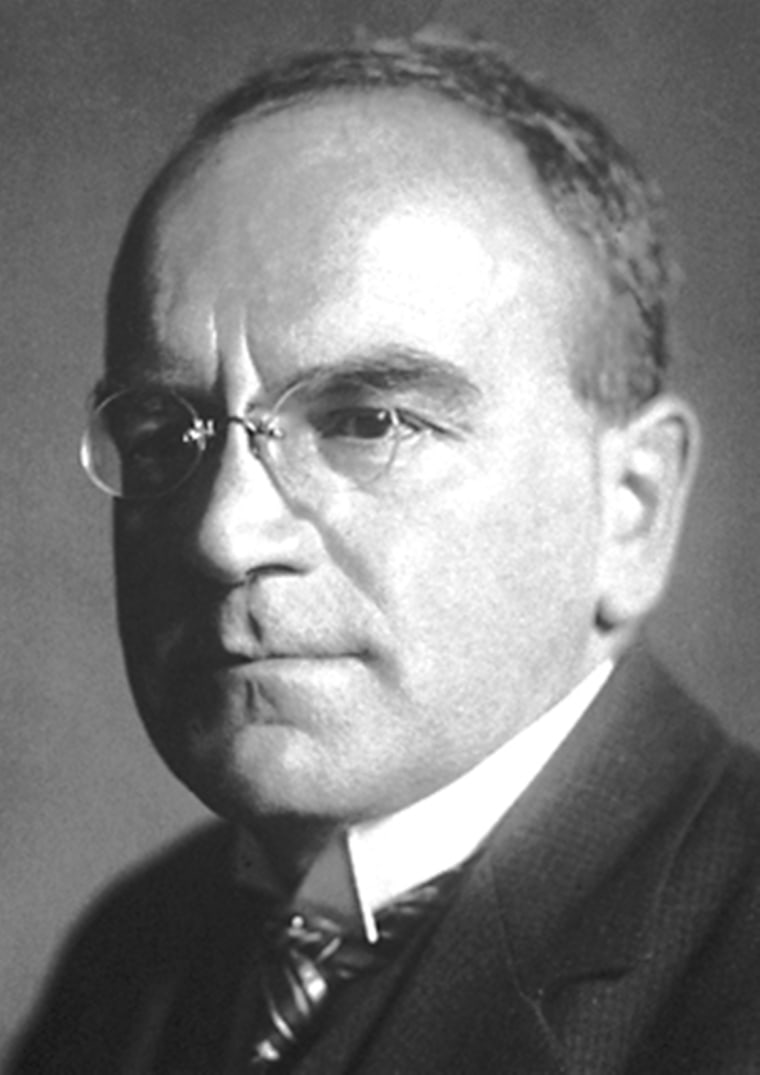The Nobel Prize gold medallion that German biochemist Heinrich Otto Wieland won in 1927 has been sold at auction for $395,000. And although that figure may not compare in monetary terms to the multimillion-dollar sales of James Watson's and Francis Crick's medals, the story of the prize and the man who won it is priceless.

The medal, accompanied by a letter of authenticity from the chemist's grandson, Heinrich Wieland, was sold to an anonymous bidder on Thursday through Los Angeles-based Nate D. Sanders Auctions. The $395,000 includes the buyer's premium, Sam Heller, a spokesman for the auction house, told NBC News.
The elder Wieland won the Nobel for his study of bile acids and related substances, such as cholesterol — but he's equally well-known for his personal courage after winning the prize. When Nazi-era laws called for the expulsion of Jewish students and others who were considered "racially burdened," Wieland kept the students in his group safe by designating them as his personal guests. He even tried to protect a student who was linked to an anti-Nazi resistance movement. (Unfortunately, Wieland failed.)
Wieland passed away in 1957, but seven years later, the Heinrich Wieland Prize was created to recognize research focusing on biologically active molecules and systems. The 100,000-euro ($112,000) annual prize is currently endowed by the Boehringer Ingelheim Foundation in Germany.
IN-DEPTH
- Russian Who Bought Watson's Medal Says He'll Give It Back
- Crick's Nobel Prize Will Boost Science in China
- The German Nobelist Who Defied Hitler (Jewish Journal)
